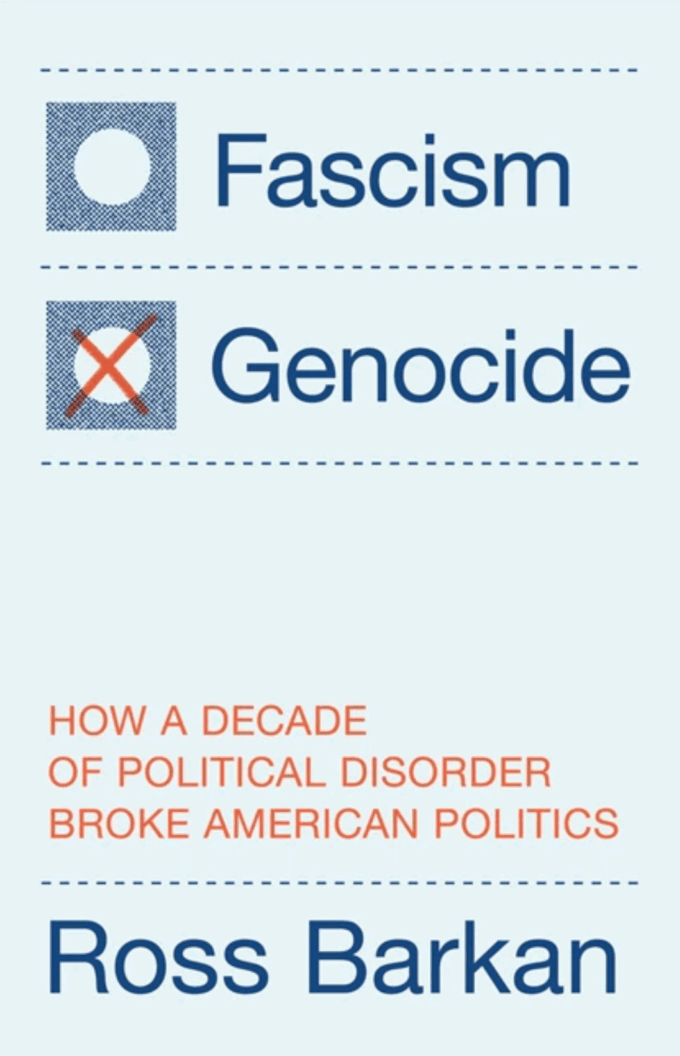


































































Photograph by Nathaniel St. Clair
Some of those who pay attention to electoral politics in the United States think the system those politics define and delineate can still be rehabilitated. Others believe the system as it currently stands is too dysfunctional to operate in any manner that can honestly claim to represent the multitude that is the US public. This group often encourages third party campaigns outside the electoral duopoly; as a result they are more often than not just plain frustrated. Then there’s the rejectionists, which includes those who make a conscious political decision to reject the shell game of US electoral politics in favor of protest and social movements and those who just stopped giving a f*ck when they realized their lot never improved no matter who was in power. In case the reader cares, I find myself among the milieu described in the last sentence—usually as one making a conscious decision to avoid electoral campaigns except for their entertainment value.
After reading journalist and novelist Ross Barkan’s recent release titled Fascism or Genocide: How a Decade of Political Disorder Broke American Politics, it seems fair to place him somewhere between those who think that the current electoral system could still work and those who see it as too dysfunctional to work. His text, which reminded me of other journalists who wrote books about presidential campaigns in the past; Joe McGinnis, Timothy Crouse, Richard Goodwin, Theodore White, even Hunter S. Thompson and Norman Mailer. Barkan does not match or even intend to match the styles of Thompson or Mailer, because that’s nigh on impossible. It is, however, wonderfully written and concisely conceived. Barkan describes a changing Democratic party—one where big tech and its grotesque amounts of money have replaced unions, working people and what the Silicon Valley types tell us is the quickly dying past. In discussing this transformation, Barkan describes an Obama administration where “there wasn’t a corporate merger the Obama administration didn’t celebrate or at least permit with little tangible resistance.”(76) For those who either never bought Obama’s public persona or came to realize it had little to do with his actual pro-Wall Street politics, this sentence echoes what we already understood. For those who still think Obama was the product he was sold as, there’s Gavin Newsom. 
Given that the title of the book addresses the fundamental choice US voters were offered in 2024—fascism or genocide—Barkan naturally discusses the election. He echoes the mainstream media’s argument that Trump’s voters were more multiracial and multiethnic than before almost as if trumpism might represent a new working-class multiracial coalition. Indeed, if one cursorily examines the numbers, this statement does ring true, yet it actually means very little when one recalls how paltry the numbers of Trump voters from those demographics were before. In other words, it was still white people who put Trump in the White House again. Furthermore, the blatant racism of much of what Trump’s administration has done since his inauguration renders any pretense that trumpism is not a white supremacist politics at its core moot, to say the least.
Like other commentators searching for a working class politics that can bring the elusive white working class—the white whale of the US political system—back to the Democrats, Barkan, while critical of the Democrats, writes about the future as if the Left must continue to travel the road maintained by the Democrats. In his mind, the left liberal wing of the Democratic party is the only Left worth considering. He writes about a resistance to Trump, correctly characterizing the Chuck Shurmer/Hakeem Jeffries “I wrote a strongly worded letter” version of that resistance as meaningless in that it focuses on Trump the man, not the politics he represents. Yet, in dismissing any opposition not involved with the Democrats, Barkan joins the liberals in the media, granting the right-wing a victory before there’s even a fight To be fair, this book was written before Trump and his henchmen began sending US troops into US cities and immigrants to Uganda and Sudan.
I wrote a pamphlet in the weeks after election Day about how trumpism 2.0 must be opposed. Let me tell you, there’s nothing in that pamphlet that looks to the Democrats for leadership or advice. In fact, my take is if the Democrats want to join a truly radical and grassroots opposition from the left, they can but they need to leave their donkeys and billionaires behind, especially their billionaires. I wrote:
“What is needed is a popular rejection of the Trump White House and its fascism; not just one led by Democrats in the courts and the legislature. This struggle needs to be waged in the streets, the schools, the workplace and throughout the United States. It’s a struggle against fascism, not a battle between the political parties of the elites.”
The reader knows what the “fascism” in the title of Barkan’s book is referring to. One hopes they also know what the “genocide” is in reference to. As regards Israel, its illegal and brutal occupation of Palestinian lands, mass murder of Gazans, and the cynical complicity of the US government in both, Barkan acknowledges that the two-state solution is dead. In an discussion of a speech by Chuck Schumer in 2024 in which Schumer called for new elections in Israel and decried Netanyahu as an obstacle to peace, Barkan calls the speech a “victory” for the anti-Zionist protesters in the US. It’s not like Schumer called for an arms embargo or an immediate and permanent ceasefire, yet in the politics of mainstream USA, the speech was seen as not supporting the Palestinian resistance, but certainly not within parameters proscribed by the genocidal Israeli state. Like Bernie Sanders and AOC, Barkan doesn’t stick his neck out too far against the Zionist lobby, but he does acknowledge that the Democrats can no longer pretend that their support for Israel and its occupation can continue unchallenged like before. Also, although Barkan doesn’t have much to say about protest movements of the past ten years, he does acknowledge that the protests against Israel’s genocide have moved the conversation in a direction that considers Palestinian lives equal with Israeli ones. A recent refusal by the Democratic leadership to call for a ceasefire or arms embargo makes it clear that the Democrats’ leadership doesn’t agree.
Barkan more or less ends his book by throwing up his hands, not exactly in surrender, but certainly not in raising the banner of radical and popular protest. I suggest it’s his refusal to take the power of those on the Left who have little use for the Democratic party seriously that limits his abilities to see the value of street protest and other manifestations of grassroots political power that aren’t promoting candidates. Although most politicians won’t admit it, the elephant in the room is capitalism. Its modern excesses are destroying the present and the hope of a decent future for most of humanity. In the United States, one political party doesn’t care while the other says it does but is bought via the millions the rich want to throw at them. The result is ever greater inequality and a growing police state. History makes it quite clear to those willing to consider it that two capitalist parties will not create the change required to create a socially just world. If anything, history tells us that what actually happens is that those two parties will compete in a race to the right, a race towards fascism. The present proves that statement’s veracity.
The post Throw Up Both My Hands (Make Me Want to Holler) appeared first on CounterPunch.org.
This content originally appeared on CounterPunch.org and was authored by Ron Jacobs.